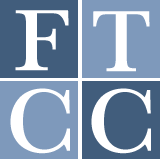General Court (Fourth Chamber), 20 April 2016, in case T-77/15 (Tronios Group International BV v. EUIPO and Sky plc)
Regulation (EC) No 207/2009 − Article 54(2) — Relative ground for refusal — Limitation in consequence of acquiescence — Article 8(1)(b) — Likelihood of confusion
Four conditions must be satisfied before the period of limitation in consequence of acquiescence starts running: first, the later trade mark must be registered; second, the application must have been made in good faith by its proprietor; third, the later trade mark must be used in the Member State where the earlier trade mark is protected; fourth, the proprietor of the earlier trade mark must be aware of the use of that trade mark after its registration.
That provision is intended to strike a balance between the interests of the proprietor of a mark in safeguarding its essential function and the interests of other economic operators in having signs capable of denoting their goods and services. That objective implies that, in order to safeguard that essential function, the proprietor of an earlier trade mark must be in a position to oppose the use of a later mark identical or similar to his own. Indeed, it is only once the proprietor of the earlier trade mark becomes aware of the use of the later European Union trade mark that it has the option of not acquiescing in its use and, therefore, opposing it or seeking a declaration of invalidity of the later trade mark and that, consequently, the period of limitation in consequence of acquiescence starts running.
The relevant date from which the period of limitation in consequence of acquiescence starts running is when the proprietor becomes aware of the use of that mark, so it is for the applicant to demonstrate that the owner of the earlier mark was actually aware of the use of the contested mark, and not only aware of the registration of that mark
categoria:European Case Law
